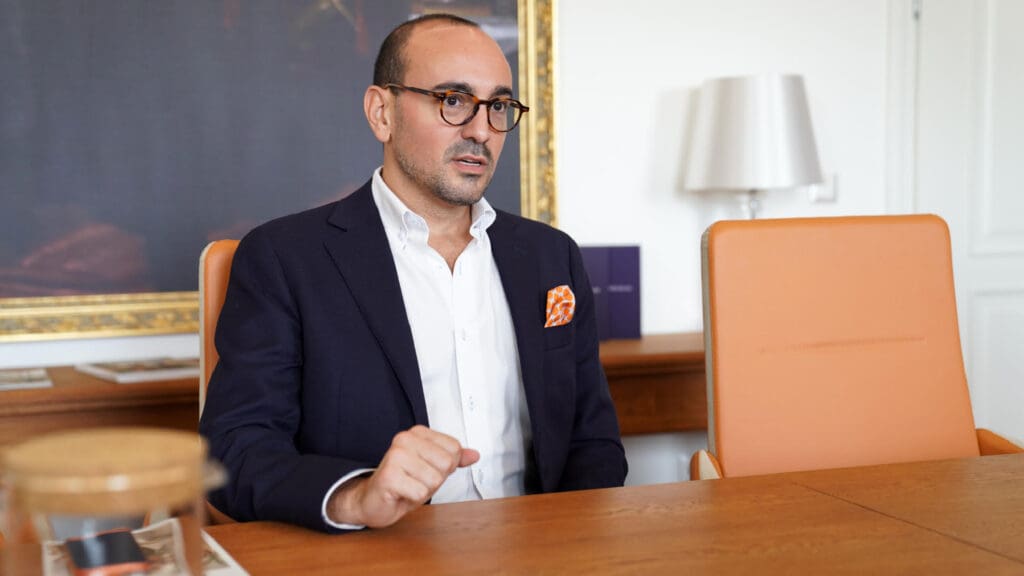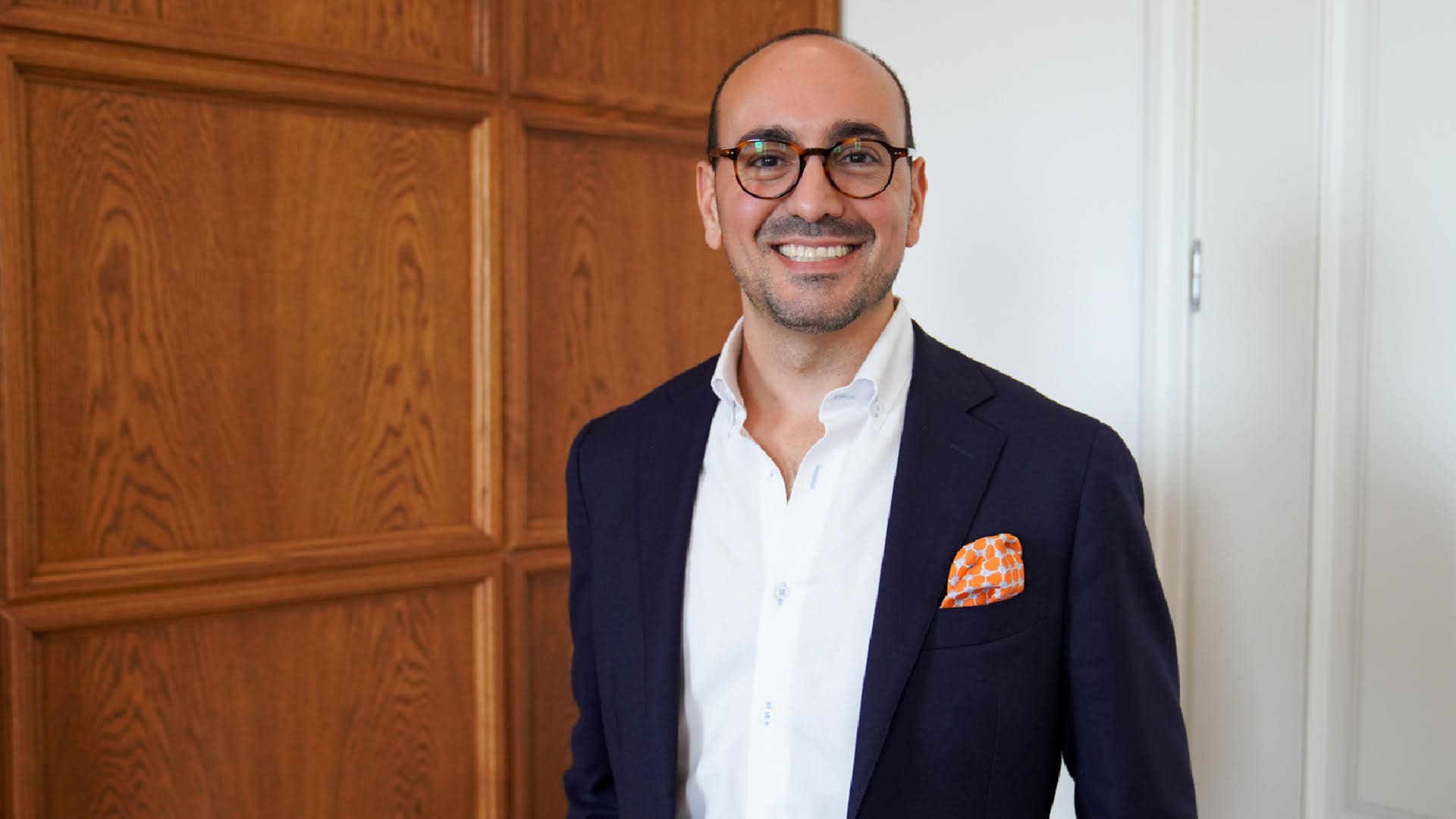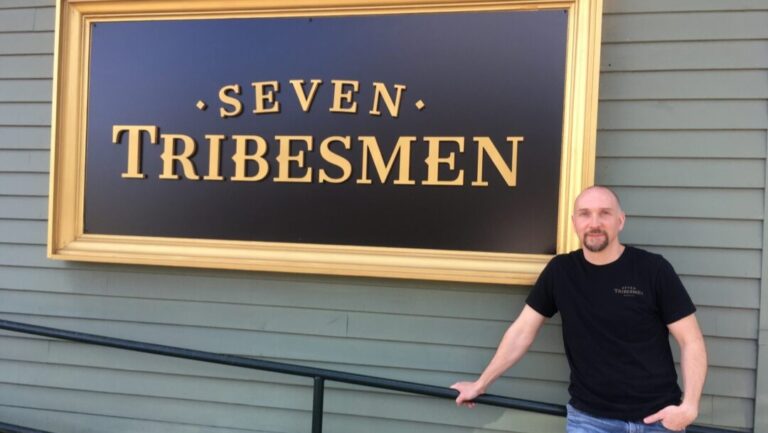Brent Buchanan has been an international pollster and messaging strategist for the successful Washington DC-based polling and analytics firm Cygnal for over 15 years. He was gracious enough to sit down for an exclusive interview with Hungarian Conservative, in which he talked about the 2024 US Presidential election, the Hungarian government’s National Consultation, and more.
Could you please provide a brief overview of your background?
Math was my worst subject in school. So, it’s kind of funny to be doing any kind of polling work. But what most people don’t realize is that polling is both an art and a science. You can hire lots of really smart people that understand the science piece of it—but the more difficult part of polling is the art side. I began doing campaigns about almost 20 years ago where I would actually run the entire campaign, produce the television ads, do the flyers, the mailers and the door-knocking, the digital advertising, and all those pieces. So, I’m very familiar with what role polling serves within the campaign. And just getting the numbers right is only part of the responsibility of a pollster. A core part, however, is understanding how that information needs to be used. So, our tagline for our company is ‘intelligence for action, not just information’.
Is this a unique tagline?
I think people look at polling as ‘just’ information. But you have to learn, you have to know what to look at to create the intelligence, and then you have to have experience in how it’s all applied in order to turn that intelligence into action within a political campaign or an issue campaign or advocacy or whatever the application is.
What is your experience in polling and survey research?
It was about 2018 when I stopped doing all the other parts of campaigns and just did polling for campaigns moving forward. We’ve done work in 17 countries and all 50 US states. We did Donald Trump’s campaign in 2020.
We’re currently working for Vivek Ramaswamy, who is probably the new right for America whether this is his cycle or not.
So, let’s get down to the matter. The title of your session here at the Danube Institute was ‘What Is Really Happening in the 2024 US Election?’. Please tell us, what is really happening? What are the most interesting trends?
Yeah, there’s not a lot happening on the surface. It’s kind of like watching a duck go around a pond. You don’t see much movement but if you look under the water the legs are ferociously moving underneath the surface. And that’s really how I view the US election right now. And some of those undercurrents imply that we’re no longer in an election where you go find people who don’t know who they’re going to vote for and persuade them to vote for your candidate. Especially in a presidential campaign where everybody knows Donald Trump, everybody knows Joe Biden, and everybody has a very strong opinion about those two candidates. So, what that means is it’s all about how you get your people to outnumber the other sides. There’s little to no persuasion left. The only persuasion is ‘Will you please come show up and vote for my candidate’.
That’s all it comes down to now?
There’s more. There’s a kind of shifting in non-white America, where—depending on whether you have a college education or not—you’re starting to align with the no college degrees who are beginning to shift towards Republicans, while college-educated and higher individuals are shifting to Democrats. But 30 years ago, it was the complete opposite. Democrats were the party of the working class and Republicans were a party of the elite and the highly educated, higher income individuals.
What made the shift then?
Donald Trump. He did that with white voters in 2016. He really took the disaffected, not-paying-attention, uneducated white voter and turned him into a Donald Trump voter.
But now what we’re starting to see in the 2024 election cycle is that non-white voters with that same education or non-education demographic are starting to shift to the Republican Party. Formerly, if you were black, you voted for Democrats. Or take the Hispanic—among them, almost everybody voted for Democrats and that’s starting to shift. And so that’s probably one of the biggest trends to watch in the election going to next year.
Are we talking about a trend during which the Republican Party and the conservatives are reforming themselves?
That’s a really unique question because they aren’t necessarily changing their policies yet. If you’re looking on the other side too, the Democrats, you would think, would be for tax cuts if their voters are wealthy people. But they’re not. So, you have voters going with a party now that doesn’t have policies that necessarily match up with your self-interest. And I think that proves so many things—these whole culture wars and personality politics where you’re not actually looking at the issues while making a decision on who to vote for.
Now let’s talk about your influence. The influence of your company and the interaction between politics and the opinion polls. Let me move on with a rather abstract question in this regard. What do you think: is there any kind of interrelation between these two, do opinion polls shape politics or quite the opposite? I’m asking about those allegations towards opinion polls being politically motivated.
This is one of the main problems I have with the polling industry per se. There are private pollsters like us and there are public pollsters.
And the public pollsters don’t have a profit motive, like they have no reason to be right.
If I’m wrong, I won’t get hired again. If they’re wrong, The Wall Street Journal or USA Today still publishes their next poll. And it has really caused a problem within our industry where people don’t want to take surveys. And that is because they believe it’s to advance some agenda, or that whatever they say isn’t what actually is going to be in the final results of the poll. Because to your point, people are using polling to attempt to drive opinion, but I think what’s actually happening is they’re driving down the trust level of all polling instead. You know, the poll comes out outside the norm.
Please clarify.
Joe Biden’s up by 10 points—nobody’s going to believe it. If something says Joe Biden’s up by two points and the next one says Donald Trump’s up by two points, I think people are smart enough consumers to say: that means the same thing. They’re not thinking about a margin of error, but in their heads, they view that as that’s close. The bigger problem with public opinion polling is that journalists don’t know how to read the data, so they don’t know how to report on it. So I think the news media is the problem, not the opinion polls. No offence! (laughs).

No offence taken. I ask this because the Eurobarometer is a series of public opinion surveys conducted regularly on behalf of the European Commission and other EU institutions since 1973.
Right.
However, not only a certain part of the public, but also several professionals see Eurobarometer polls as politically biased. Most of the accusations are related to the influence of the European Commission, but I could cite the allegations concerning the wording and framing of the questions, and also the sampling. All these allegations are also reflected in scientific articles. Despite these accusations and the unclear response to those, Eurobarometer opinion polls are from time to time the basis for reports on the rule of law, which also serve as a basis for negative framing of Hungary’s government to a significant extent. What is your view on this issue?
Well, it depends on how they are conducting the survey. As I said, polling is an art and a science; and part of the science part is statistics, but sometimes part of the art is how you actually get somebody to complete the survey. So, if you’re only doing telephone calls and you have GDPR, what do you reach? 15 per cent of the population?
Maybe.
So, 85 per cent of the population didn’t even get a chance to participate in the survey because nobody called them. and nobody could legally call them for the survey. Same thing with online surveys, not everybody gets a chance to participate. So, our approach is what we call multimode.
What do you mean by that?
We’ll knock on your door, we’ll send you an email. We’ll call you. We’ll text you. We will hit you up online. We want to give you lots of opportunities to participate in the survey. But, returning to your previous question, I’m not sure about the methodology of the survey. But I think the bigger thing is that the conservatives are really good at complaining, and then nobody steps up and funds an alternative. So, if you don’t like the Eurobarometer, fund your own alternative to it!
Actually, the Hungarian government has something very similar, however, they don’t brand it as an opinion poll. ‘National Consultation’ in Hungary is a series of government-initiated surveys or questionnaires that the Hungarian government conducts to gather public opinion on various policy issues or legislative proposals.
Needless to say, these consultations are often presented as an effort to involve the public in decision-making processes. But it’s still not referred to as a type of ‘opinion poll’, but rather, a way the Hungarian Government reflects on the views of the voters. How do you assess admittedly politically motivated questionnaires that are not meant to be sold as public opinion polls to the public?
It comes down to transparency. I think one of the main things is
if people know it’s from the government, they’re either very likely to take it because maybe they support the government or they’re very likely to avoid it because they don’t trust the government. So the messenger matters in this.
Comparing the Eurobarometer to these National Consultations, it might be said that they are seeking two different purposes. It’s not about one is not right and the other’s wrong—they’re just different. We do this a lot in our research when we’re doing message development where we’re trying to figure out how far a candidate can go when talking about an issue. We ask that question and look for levels of supporter agreement or opposition disagreement. And the Hungarian government does the same: it’s going to take a policy position but would like to know how many fall in opposition and how many in support. So, what the Hungarian government is doing is not wrong—it’s just different, but it’s also a survey research. In addition, I also think the reason that the Eurobarometer does not do that is because the procurer would be scared to know the answer.
The answer to what?
My dad has always said that growing up, don’t ask a question you can’t stand the answer to. And I think that’s why they don’t take the approach the Hungarian government is taking—because they would realize that Europeans are more supportive of centre-right policies than they would want to put their name and admit to. It’s because of who funds them.
At your company, Cygnal, how do you respond to the scepticism and criticism about the whole polling industry and how do you design your survey questions to minimize bias to accurately capture public opinion?
It all starts with how you get the survey in front of somebody—how do you get somebody to actually start the survey and then complete that survey? So, we have different modes of communication, as I was saying, we’ll go get somebody to at least start a survey. And because of the distrust in public opinion surveys that you were alluding to earlier in the interview, we have started putting a line into the introduction of our survey stating, ‘This is not for a news network or for public release,’ so that the respondent knows he is not taking one of those surveys, one of those that he sees in the newspaper. This is something completely independent because we want to reduce that non-response bias (Note: Non-response bias can occur when subjects who refuse to take part in a study, or who drop out before the study can be completed, are systematically different from those who participate.)
Are there any more methods you apply when minimizing bias?
Sure. Another way is to start broad and work to narrow. If I walked up to you and said, ‘What do you think about transgender people?’ You’re going to be like, ‘Hey man, we’re not that close.’ That’s not the first thing we’re going to talk about. But if we talk about do you think that Hungarian culture is headed in the right direction or the wrong track, you’re willing to answer that question. That’s a pretty safe question to answer. So it’s about building rapport with the respondent and then, within each question, giving them a set of response options that are mutually exclusive and offer neutral response options.
How do you handle those cases when the client does not want you to offer neutral response options?
Well, a lot of times a client will come to us and say like ‘I want your survey to show this type of result’. And we say ‘Well, we’re not your firm’, because our response options are going to be mutually exclusive and offer a neutral option. Not every respondent feels comfortable answering every single question, but they’ll answer almost all of them, as long as, on the ones that they’re not really sure what they believe, you give them an out.
So, it’s about having that funnel where you start very broad and safe and work your way down to the more challenging questions. And then make sure that if you’re doing message development, for example, and you want to test 15 messages of what’s the most effective to actually move somebody’s opinion, one of the ways that you can reduce bias is by randomizing those questions. It’s all about the need to have that rapport with them even if it’s digital, so that they’ll be honest with me in responding to the survey.
Let me ask you about Hungarian conservative policy-making. Have you ever polled the US public about this country and the policies we have?

Not in the US directly. I actually think that would be something better for a conservative audience, like a Republican primary, for example, because it’s been really neat. I’ve been coming to Budapest for the last two and a half years about every four to six months. And when I first came, almost nobody had an opinion about Hungary. It wasn’t bad, it wasn’t good, it was just like one of those neutral response options. ‘I don’t know, no opinion. That’s my response.’ But because of Tucker Carlson coming here, because of CPAC, and because of the culture wars happening in the US, a lot of my conservative friends now look to Hungary as a blueprint for what we should be doing in the United States.
What are the most compelling statements in this regard?
There are quite a few. ‘Marriage is between a man and a woman’. ‘Children aren’t allowed to change their genders.’ ‘We’re going to be a culturally conservative nation with morals and values, and this is what we believe and we’re willing to implement it in government.’
Are these statements implementable in your country for a conservative-leaning government?
I think one of the challenges for Republicans in the US is if they believe those things, they’re not willing to go expend political capital to implement it from a policy perspective. People like Ron DeSantis have done so in Florida, and some other governors and states as well, but we haven’t had at a national level the fortitude to go do those things. So, I think
if I were to poll my Republican friends about Hungary now, it would be, or among Republicans in general that are attuned, there’d be a very positive opinion of Hungary. This also means the left would have a very negative opinion of Hungary
because they don’t agree with what you’re doing here from a policy perspective.
Have you ever surveyed Hungarian people?
Yes, I did survey Hungarian youth last year—I surveyed American youth and Hungarian youth, and I asked them the exact same questions. So, we did the survey, and we did it for MCC (Mathias Corvinus Collegium). And it was really interesting to see the similarities between the two. But one of the biggest differences between them was the American youth wanted nothing to do with their parents and their parents’ opinions. Meanwhile, the youth here were much more likely to trust, seek out, and believe their parents’ opinions on political issues, which I think goes to the cultural aspect of Hungary’s culture compared to our culture in the US.
Related articles:








